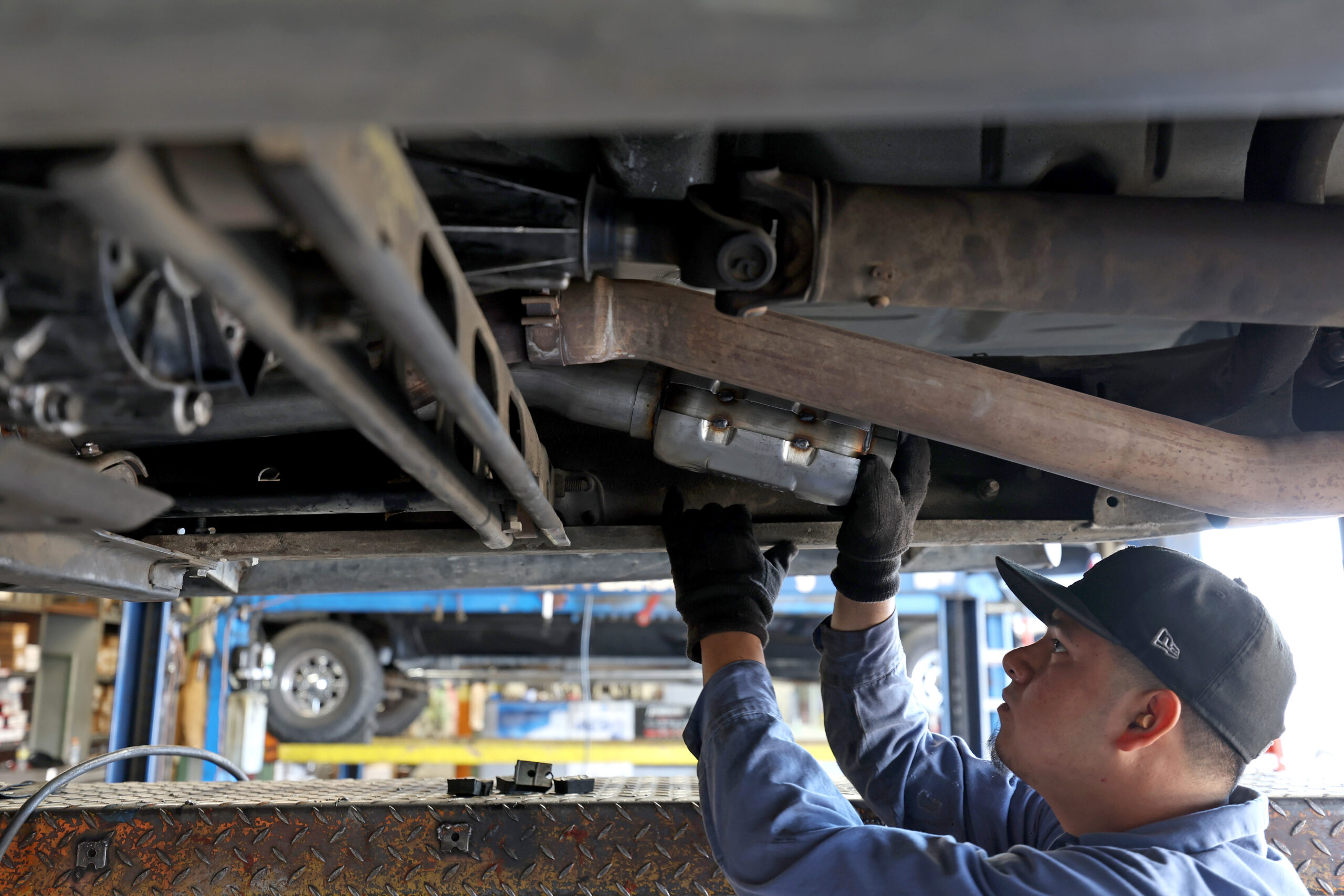Bill Paine warned his daughter Cece not to park her Toyota Prius anywhere except her high school or their home, fearing thieves would steal the car’s catalytic converter.
“My dad was freaking out, like, ‘You can’t park it anywhere!’ and I was like, ‘No, it’s fine!’,” said Cece Paine, a former St. Ignatius College Preparatory student.
Then in February 2021, Paine, her father and her brother had been roller skating on the Great Highway when they came back to their parked car expecting to drive back to Marin with ease.
But when her father turned the ignition, they heard a strange noise from the engine.
“He put it in drive, and then he was like, ‘Our f****** catalytic converter got stolen!’” Paine said.
Paine is one of almost 800 victims of catalytic converter theft since 2021 in San Francisco, and new data from SFPD indicates that theft cases are on the rise.
And the citywide problem is getting worse—The Standard found through public records requests that catalytic converter thefts have increased in seven out of 10 SF police precincts.
Taraval’s police station zone is the worst affected area in the city, with 92 stolen catalytic converter reports so far this year, compared to 76 in 2021.
Ingleside saw the largest year-on-year increase, with an additional 25 thefts this year, totalling 67 in 2022 so far.
Other problem areas for the thefts include the Mission and Richmond districts, which have seen 51 and 41 thefts in 2022.
San Francisco Police information officer Kathryn Winters says the data is incomplete as the numbers are only collected from reports that contain the words “catalytic converter”; the total number of thefts is likely higher.
“Undercounting can occur. It is where an officer misspells or miswrites something, or uses another phrase like ‘exhaust system’,” Winters said.
How To Protect Your Car
Catalytic converters are an important part of a car’s exhaust system, which are required to pass a smog check unless your car was made before 1975.
The converter uses rare metals including rhodium, palladium and platinum as catalysts to neutralize harmful emissions. It is these valuable rare metals that make catalytic converters lucrative targets for thieves—who often sell the parts to junkyards.
To prevent catalytic converter theft, the San Francisco Police Department recommends having the catalytic converter welded to your car’s frame or engraving your vehicle identification number (VIN) on the catalytic converter to alert a scrap dealer it may be a stolen converter.
Another way to protect your catalytic converter from theft includes metal shields that can be installed around the converter. They can be purchased directly from the manufacturer in some cases, like Toyota for example, or by third-party companies for Honda or Ford models.
If you can’t find a ready-to-order shield for your car, you can get one custom-made and installed by a shop that makes them in-house.
San Francisco’s Golden Auto Muffler and Brakes Center makes steel rebar cages that are bent around the converter and welded to the car’s frame to add theft protection.
Matt Owyang, a mechanic at the Folsom Street shop, believes the thefts increased when the pandemic hit.
Owyang said his shop installs one or two cages daily—while replacing five or more stolen catalytic converters every day.
“We saw thefts really tick up during the pandemic,” Owyang said. “It was happening before the pandemic, but it got a lot worse once Covid hit.”
Owyang’s cages cost roughly $500 each and take several hours to make.
The cage has worked so far for Cece Paine’s family, who had one put on the Prius shortly after the February 2021 incident.
“I think the cage worked, because it has never been stolen,” Paine said.
